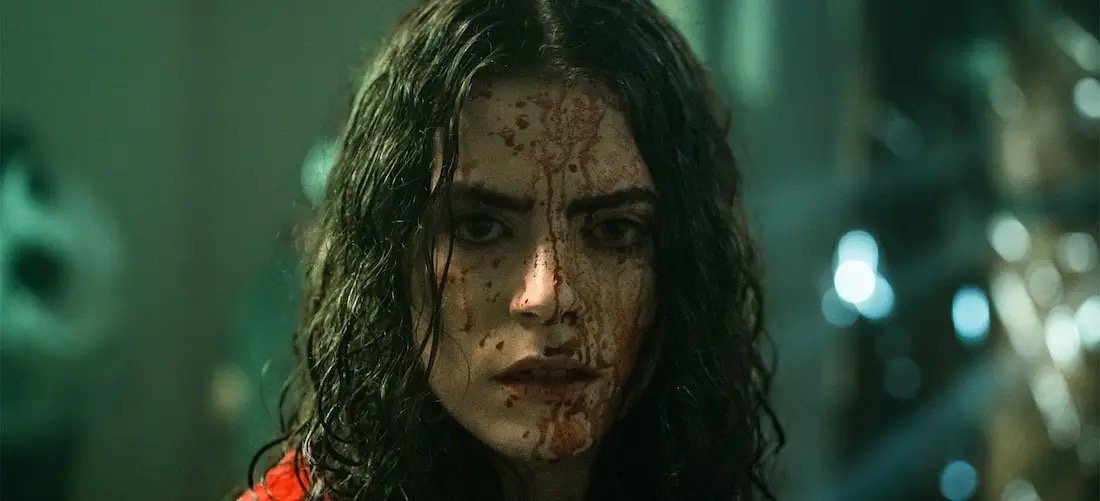CARA
****
Directed by Hayden Hewitt.
Starring Elle O'Hara, Johnny Vivash, Jacob Roberts, James Dreyfus.
Horror, UK, 96 minutes, Certificate 18.
Released by 101 Films on digital platforms on 17th February 2025.
After suffering childhood sexual abuse, Cara has become so psychologically damaged that she is having trouble distinguishing between reality and fantasy. She keeps slipping into a dissociative state, her intrusive thoughts are making her job as an online sex worker impossible, and she is convinced that her mental health support team are conspiring to send her back to the institution where she suffered yet more abuse at the hands of the orderlies. But unlike the other women in her life (a blissfully ignorant mother and a far more vulnerable flatmate), Cara has a plan to get, and stay, free.
I would love to go into detail about how clever this film is, to appreciate the touches of dark humour and to acknowledge all the little breadcrumbs scattered throughout, guiding viewers towards an ending that is both satisfying and upsetting. But that would give too much away. Instead, I’ll just give the assurance that the attentive viewer will be rewarded with an intelligent, thoughtful and beautifully made film that will play in their heads long after watching. Director and writer Hayden Hewitt trusts his audience enough to not spell things out, but all the information needed to understand every character and every interaction, is there.
CARA marries slow-burn psychodrama with shocking violence, and I imagine this will narrow the fan base a little: those who prefer subtlety and subtext might find the gore too much, and those who enjoy buckets of blood might become impatient for more action. But for those, like me, who adore both LAKE MUNGO and MIDSOMMAR, and would like to see them get married, CARA is perfect.
The slow burn and the gore are both necessary to this story. The male violence that is part of almost every interaction contributes to the build-up, but is not the main event. Men beat, threaten, insult, objectify and control the women throughout, but it’s the female violence – contained, planned and very focused – that is absolutely cataclysmic.
It feels as if the director is very much on Cara’s side, and succeeds in telling the story of a sex worker and her abuse, without exploiting her. There is nothing even remotely titillating about what Cara has been through (unfortunately there are many comparable films where this is not the case), and thankfully, the audience does not have to watch yet another woman being brutalised on screen. It is entirely possible to understand how bad it was for Cara then by seeing how bad it is for her now. Similarly, in the scene where Cara strips for her livestream clients, the camera turns on them rather than offering her body up to the viewer. We see what she sees, and it’s definitely not sexy.
Elle O’Hara is excellent as Cara, believably oscillating between the raw anguish of her character’s inner self and the flat, sardonic mask that she presents to the world; and Johnny Vivash’s John is chilling, moving from tenderness to menace and back again in the course of a few lines. I found Julie Hannan also particularly noteworthy, as Cara’s mother – a sweet-natured woman, gently baffled by her daughter’s hostility, who Cara blames for turning a blind eye during one particularly traumatic event in her past.
Overall, this is a gem of a film, but it does tread on dangerous psychological ground. It’s a good idea to read the trigger warnings and to take them seriously.
Robyn Fraser

